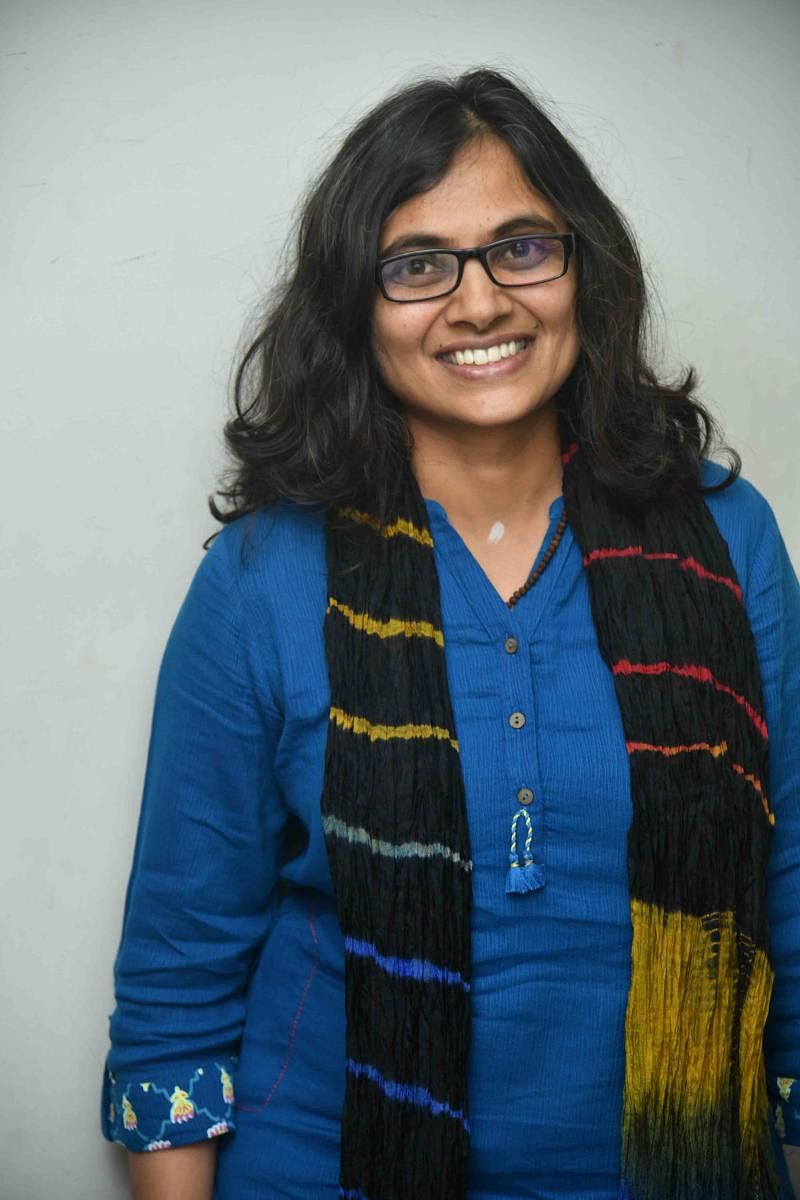
Filmmaker Roopa Rao says that she can never imagine a life without cinema. “I breathe cinema. It is like meditation for me, “ she tells Metrolife. Her first feature film, titled ‘Gantumoote’ has been screened at a few international film festivals, ahead of its release here. A software professional-turned-filmmaker, Roopa gave up a cushy job to pursue her love for cinema. She completed a course in filmmaking from the UK, before launching a career in the film industry. In an interview with Metrolife, Roopa talks about the making of ‘Gantumoote’.
What inspired you to make this film?
While looking through a couple of stories that I wrote a while ago, I chanced upon ‘Gantumoote’ and thought it was relevant to today’s times. Nobody can really forget their first love. And the stories of one’s first love is so fresh and endearing that I wanted to narrate it from a girl’s perspective. The story is set in the 90s. The academic pressure, bullying, friendships forged and movies that influenced youngsters of this time have all been captured in this film.
What does the title mean and how do you interpret it?
‘Gantumoote’ means ‘baggage’. The tagline of the film, the hyphenated ‘bag-age’ is a pun on this. The formative years of high school play a very significant role in shaping an individual’s personality. It sets the tone for the rest of one’s life.
This film portrays that phase of one’s life when one carries all the baggage along.
We don’t realise that we have accumulated so much baggage till it becomes too much to bear. These emotions, accumulated over the years, is figuratively called ‘Gantumoote’.
Why do you feel this film is relevant today?
This story, I feel, is timeless. It is relevant to anybody who has fallen in love in high school and has experienced the same emotions as narrated in the story. These emotions last a lifetime.
How did you choose the actors?
The story is narrated from her perspective. The journey that she goes through is so vast that we needed someone older, who could understand and portray these emotions in a mature manner.
We found the perfect match in Teju Belawadi. I had earlier watched a play where she depicted a 35-year-old woman and I was impressed with her performance. Nischith was a student in one of the workshops that I conducted. The innocence in his eyes suited the character. All the other actors are all first-timers, but they have all understood and interpreted their roles so well.